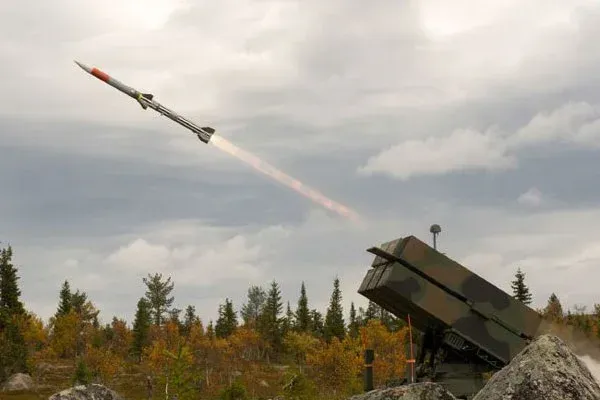Lithuania Acquires 36 AMRAAM Missiles from the United States, Bolstering Its Air Defense Systems
VILNIUS – Lithuania, in a significant move to strengthen its defense capabilities, has secured a deal to purchase 36 AIM-120C-8 Advanced Medium-Range Air-to-Air Missiles (AMRAAMs) from the United States, as announced by the US Defense Security Cooperation Agency (DSCA). The deal, valued at €94 million (approximately $100 million), comes as part

VILNIUS – Lithuania, in a significant move to strengthen its defense capabilities, has secured a deal to purchase 36 AIM-120C-8 Advanced Medium-Range Air-to-Air Missiles (AMRAAMs) from the United States, as announced by the US Defense Security Cooperation Agency (DSCA). The deal, valued at €94 million (approximately $100 million), comes as part of Lithuania’s efforts to bolster its National Advanced Surface-to-Air Missile Systems (NASAMS).
Defense Minister Arvydas Anušauskas stated, "We continue to ensure that the Lithuanian Armed Forces have sufficient ammunition. The AMRAAM missiles will be meant for our NASAMS medium-range air defense systems." This acquisition aligns with Lithuania’s proactive approach in enhancing its defense mechanism, especially considering the geopolitical challenges in the region.
NASAMS, produced by Norwegian supplier Kongsberg, is a crucial part of Lithuania's air defense arsenal. The country procured its first NASAMS system in late 2020, and further acquisition phases were initiated earlier this year. Notably, Lithuania has also procured NASAMS launchers for Ukraine, emphasizing its commitment to collective defense.
The AMRAAM missile, manufactured by American defense company Raytheon, a subsidiary of RTX, is renowned for its all-weather capability, beyond-visual-range and home-on-jamming functionalities. With a length of 3.6 meters and a launch weight of 150.7 kilograms, the missile can deliver an 18.1kg high-explosive blast fragmentation warhead to a distance ranging from 20 to 30 nautical miles.
The DSCA emphasized the broader strategic significance of this sale, stating that these missiles "will improve Lithuania’s capability to conduct self-defense and regional security missions while enhancing interoperability with the US and other NATO members." The agency also assured that this sale will not disrupt the fundamental military equilibrium in the region.
This acquisition follows the Vilnius summit in June, where Lithuania called on NATO allies to bolster the defense on the alliance's eastern frontier. Defense Minister Anušauskas has been vocal about the need for more substantial measures beyond aerial policing, urging for a transition to aerial defense.
In recent years, the US and Germany have emerged as primary defense suppliers to Lithuania and the broader Baltic region. The increasing prioritization of the Baltic states by the US is set to facilitate Lithuania's integration of standard NATO weapon systems, aligning its defense capabilities with European counterparts like Poland and Estonia.




